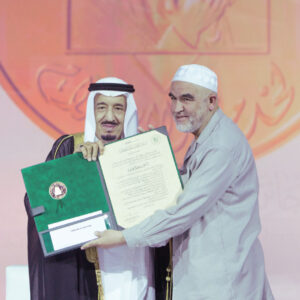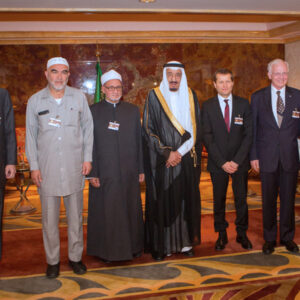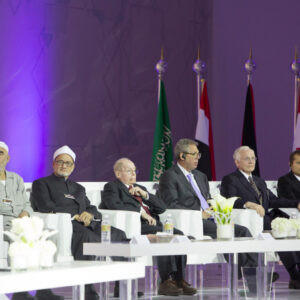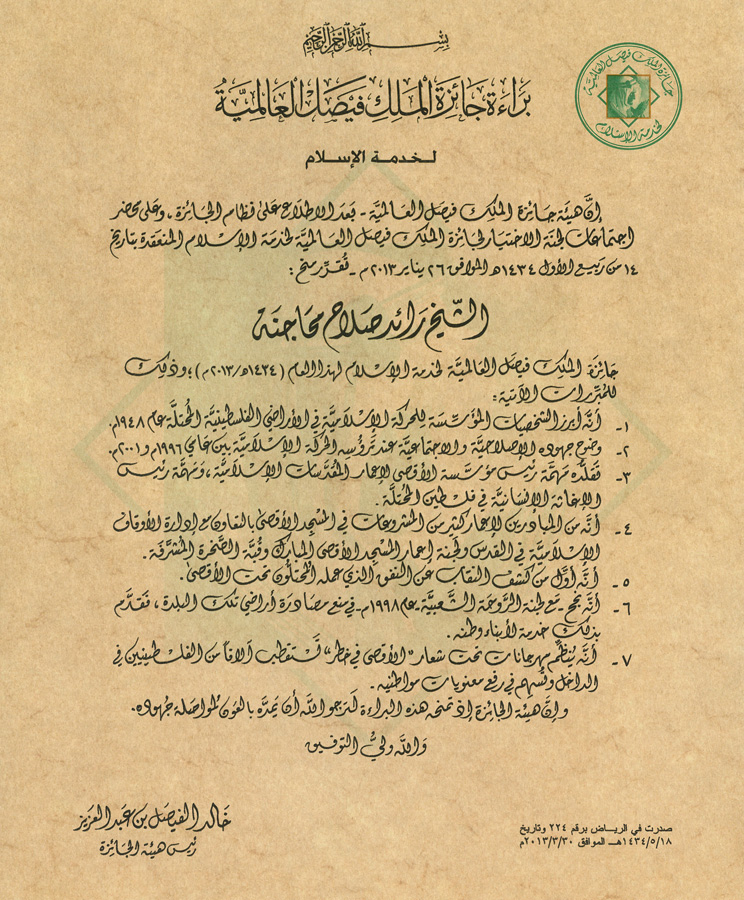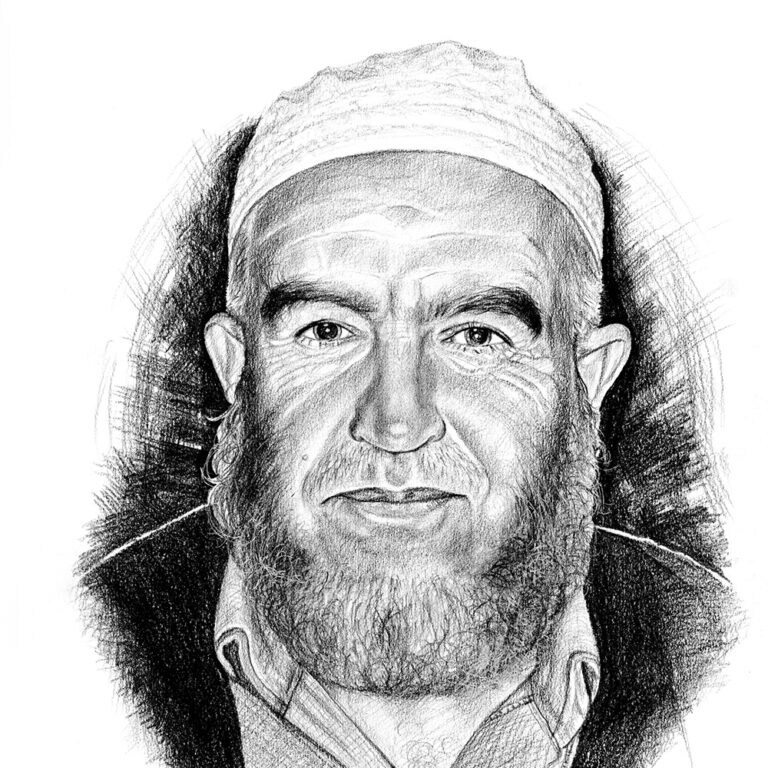
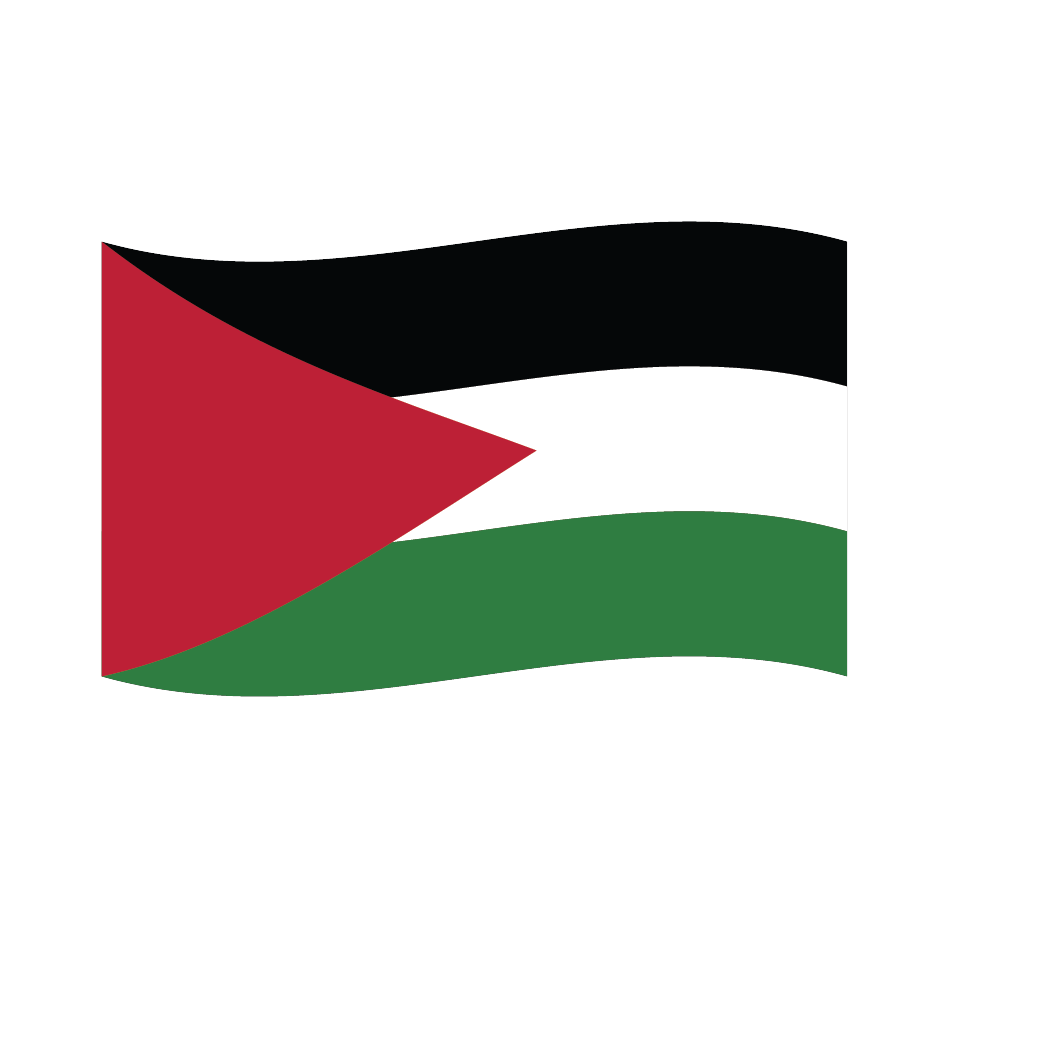
Shaikh Rai’d Salah Mahagna
King Faisal Prize in Service to Islam 2013 Laureate
Serving humanitarian civilizations, and conveying guidance, mercy, and peace are the orders of the Holy Quran and the Sunnah of our prophet

Raed Salah completed his primary, middle, and high school education in Umm Al-Faham before moving to the Islamic University in Galilee, from which he received a bachelor’s degree in Islamic Sharia. He descends from a Palestinian family that refused to leave its homeland following the occupation of Palestine in 1948. He is the Chairman of the Islamic Movement in the occupied Palestinian territories of 1948, the Supreme Council for Islamic Da’wa, and Al-Aqsa Society for Restoration of Revered Islamic Shrines and the Islamic Relief Foundation. A highly respected Islamic personality, Shaikh Salah remains a relentless fighter against aggression towards Palestinians and their Holy shrines.
Shaikh Raed Salah emerged as an Islamic activist from an early age and worked in the field of Islamic Dawah since his years in high school. He was one of the founding members of the Islamic Movement in Occupied Palestine during the 1970’s and an editor of Al-Sirat Al-Islami (Islamic Path) magazine. He was elected three times as a Chairman of Umm Al-Faham municipality before deciding to devote his entire time to his other responsibilities, particularly restoration and protection of Al-Aqsa mosque.
Shaikh Salah struggled unyieldingly to protect Islamic shrines from attempts to demolish or use them for other purposes. In August 2000, he was elected as a Chairman of Al-Aqsa Society for Restoration of Revered Islamic Shrines, which played a major role in defending mosques throughout Palestine and in exposing and challenging the construction of a tunnel under Al-Aqsa mosque. He also succeeded in averting Israeli plans to take over the mosque’s affairs from Muslims and organized the massive “Al-Buragh march” in which he led tens of thousands of worshippers to pray in the mosque. He also succeeded with his colleagues in restoring the Marawani praying quarters and opening its gates for worshippers, and in refurbishing, cleaning, and lighting the old Aqsa and constructing more ablution areas and restrooms for worshippers. He revived the historical “stairs classes,” especially Tuesday class in Al-Aqsa mosque, which is attended by about 5000 Muslims weekly. He contributed to the establishment of “Al-Aqsa Child Fund”, which fosters about 16000 Palestinian children. Besides, he organizes the annual event “Bait Al-Maqdis is in Danger” during the Holy month of Ramadan in which thousands of Palestinians in the occupied land participate. He also assists in organizing Al-Aqsa Scientific and Cultural Competition and in producing documentary films and books on Al-Aqsa mosque and the threats it is facing.
It was not surprising that Shaikh Salah’s activities as a Chairman of the Islamic Movement in Palestine have subjected him to considerable harassment by the occupying forces including arrests, assassination attempts, and periods of imprisonment. However, none of this dissuaded him from continuing his struggle in defending Al-Aqsa Mosque and other Islamic shrines in his country. In 2010, he also participated in the Turkish Freedom Flotilla carrying humanitarian aid in an attempt to break the maritime blockade on Gaza Strip. Israeli warships raided them, killing 16 and injuring more than 36 unarmed participants and took Shaikh Salah and others to the Port of Ashdod.
This biography was written in the year the prize was awarded.

